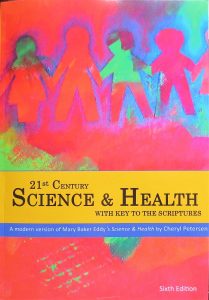Dealing with sensitive issues such as revising church by-laws, calls this question to mind: Are you relying on God’s law, or on human laws?
In other words, leaders who penned by-laws are not called into question. They did their job for their era. But that doesn’t discount us from doing our job of outlining guidance relevant to today.
Crowning achievements of churches is not Manual by-laws, most churches have them, but rather the structure of government and practices that make the Manual applicable. By-laws can be enforced according to its terms and not according to the whims of a leader or governing board.
Proceeding after the by-laws of government and practices, topics not covered by the Manual’s words, are to be resolved by open deliberation, logical persuasion, and wise compromise. This procedure produces revisions or new laws that provide the conditions essential to flourishing churches.
January 11, 2018, at a Break Point symposium, Jeff Myers, Ph.D., President, Summit Ministries, said, “Whatever pressing cultural issues need tackling in 2018, Christian faithfulness will involve preparing believers to have ‘water cooler conversations’ using public arguments that make sense to rising generations.”
I doubt Myers is implying that our living and sharing of Christ needs dumbing down, but that we need to respect the time and attention of other people and speak clearly and relevantly with them.
Translating this idea of expanding on foundational principles to church by-laws, new policies can reflect today’s circumstances.
January 5, 2018, 12th President of the Christian and Missionary Alliance, John Stumbo, introduced new revisions to the organizations Manual. Stumbo wrote, “I am pleased to introduce our Manual to you. It contains the most recent understanding of how we can function best as a denomination. Together, through the passing years, we created it. Together, in the years to come, we can adjust it as we deem appropriate. It is a human tool . . .necessary, even valuable, but not infallible. For our historic ministry to be relevant for generations to come, such tools as this one will continue to be revised.”
For myself, as a student of Christian Science, I see the value of revising the Church Manual as established more than 100 years ago by Mary Baker Eddy. Some of her statements are so restrictive that church members today can’t and don’t’ follow them. They are a church only in name, not practice. However, Eddy admitted making mistakes in her life and correcting them. A principle that can be followed by true leaders.
As author and speaker, Jenni Catron wrote online February 2018, at Christianity Today, true leaders “keep their eye on the big picture. While they manage the details and are attentive to what it takes to bring a plan to fruition, they keep the big picture in front of themselves and those they lead. They don’t lose sight of the goal.”

